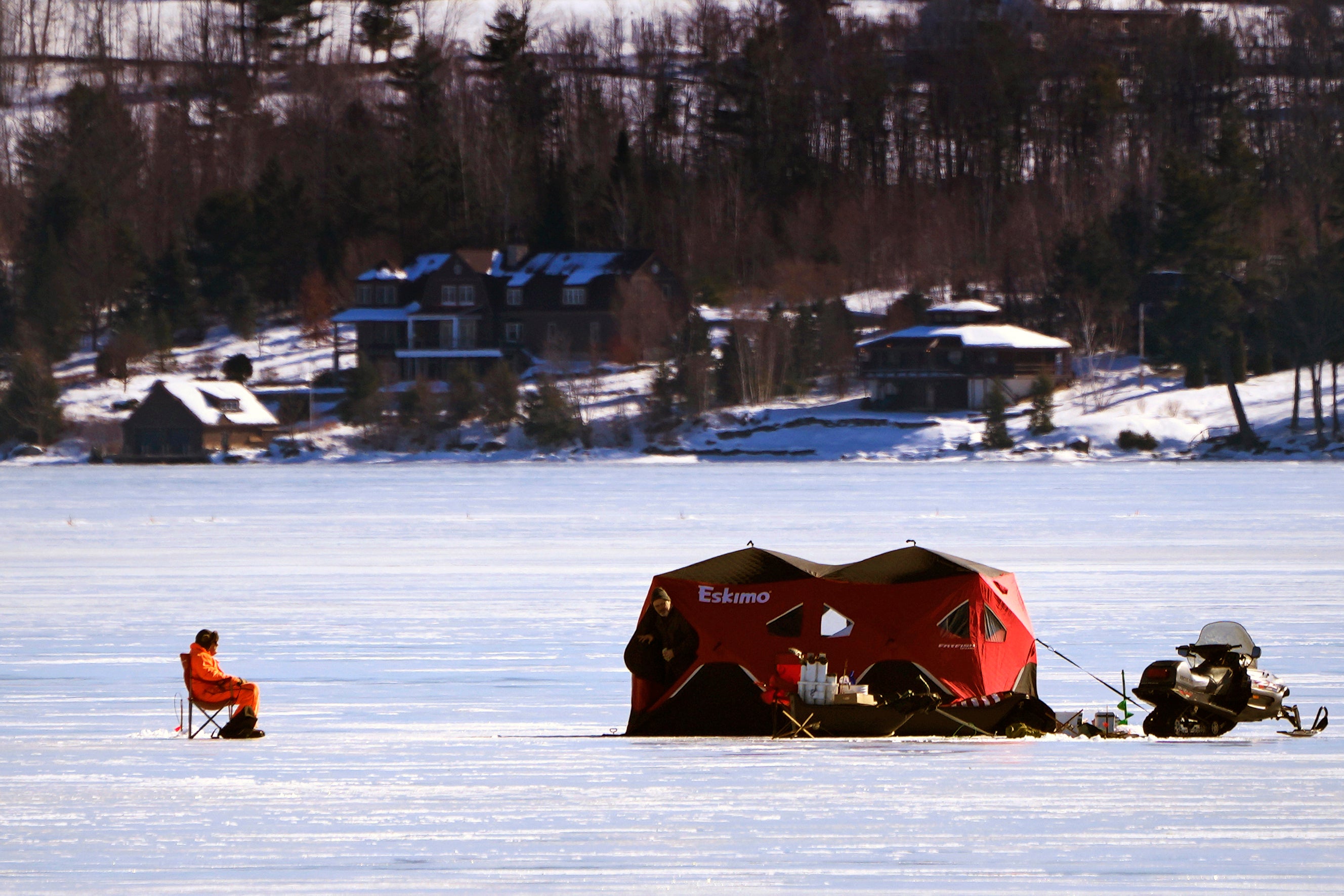VT couldn't have done more to stop ice deaths, official says
The head of the Vermont Fish and Wildlife Department says he doesn’t think there was anything more the state could have done to prevent the deaths of three ice fishermen who fell through the ice on Lake Champlain in two separate incidents within days of each other

Your support helps us to tell the story
From reproductive rights to climate change to Big Tech, The Independent is on the ground when the story is developing. Whether it's investigating the financials of Elon Musk's pro-Trump PAC or producing our latest documentary, 'The A Word', which shines a light on the American women fighting for reproductive rights, we know how important it is to parse out the facts from the messaging.
At such a critical moment in US history, we need reporters on the ground. Your donation allows us to keep sending journalists to speak to both sides of the story.
The Independent is trusted by Americans across the entire political spectrum. And unlike many other quality news outlets, we choose not to lock Americans out of our reporting and analysis with paywalls. We believe quality journalism should be available to everyone, paid for by those who can afford it.
Your support makes all the difference.Vermont authorities could not have done anything more to prevent the deaths of three ice fishermen who fell through the ice on Lake Champlain in two separate incidents within days of each other, the head of the Vermont Fish and Wildlife Department said Tuesday.
The men fell through the ice and died this past week, prompting safety warnings from the state.
Ice conditions are typically good at this time of year for ice fishing, but it has been unusually warm, according to Chris Herrick, commissioner of the Vermont Department of Fish and Wildlife. The department always recommends checking the ice — with a metal pole or an auger — and never recommends taking a vehicle onto the ice, Herrick said.
“All along, like we always do, we tell people to check the ice conditions, talk to the bait shops and find out what people were saying about the thickness. And so I feel our messaging was right on target," he said.
The department had put out a news release on Jan. 3 about recommended ice thickness, followed by a social media post. It also supplied ice fishing safety tips and other information online.
Wayne Alexander, 62, of Grand Isle, fell through the ice on Feb. 9 in Grand Isle State Park and was pronounced dead the following day.
John Fleury, 71, of Williamstown, and Wayne Fleury, 88, of East Montpelier, fell through the ice and died on Feb. 11 in Keeler Bay, South Hero.
Vermont State Police said following the deaths that state authorities were advising “the public to stay off the ice on Lake Champlain while the current warm weather persists.”
State leaders have identified warming temperatures as a concern, especially in recreation. The rate of warming “has increased through the last 120 years, and is currently around +0.5°F a decade,” according to the Initial Vermont Climate Action Plan released in 2021.
The 43rd annual Islands Ice Fishing Derby was also canceled as a result of ice conditions. And organizers of the Biff Ice Fishing Derby scheduled for Feb. 24 to 26 on Lake Champlain have already called off this year’s event because of the poor ice conditions.
“It was definitely a hard decision but definitely the right decision,” said Alaina Mobbs, president of the derby created in memory of her brother-in-law, John Fay, an avid ice fisherman who died unexpectedly several years ago.
Although organizers were not asked to cancel the event, they took note of state warnings about thin ice. She said she would not want to put anyone else through the pain that the families of the three men who died are going through.
“I would feel horrible if somebody got hurt,” Mobbs said. “I do not want to promote that.”
Money raised by the derby is donated to local charities. Last year, about 300 people participated, raising nearly $4,000.
An Arctic snap a few weeks ago brought ice to the lake, but temperatures then warmed, and that caused the ice to deteriorate, Herrick said. The poor ice conditions can be deceptive because ice can be thinner further into the lake where there is a current, he said.
“It’s a bigger body of water. Believe it or not the lake has a lot of currents in it," Herrick said. “If you’re moving around a lot, you need to be careful.”